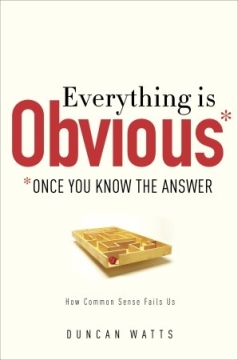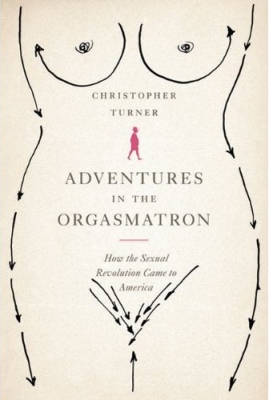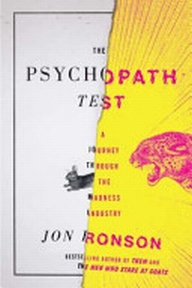- HOME
- INTRO TO THE FORUM
- USE AND MISUSE
- BADLY WRITTEN, BADLY SPOKEN
- GETTING
TO KNOW ENGLISH - PREPARING FOR ENGLISH PROFICIENCY TESTS
- GOING DEEPER INTO ENGLISH
- YOU ASKED ME THIS QUESTION
- EDUCATION AND TEACHING FORUM
- ADVICE AND DISSENT
- MY MEDIA ENGLISH WATCH
- STUDENTS' SOUNDING BOARD
- LANGUAGE HUMOR AT ITS FINEST
- THE LOUNGE
- NOTABLE WORKS BY OUR VERY OWN
- ESSAYS BY JOSE CARILLO
- Long Noun Forms Make Sentences Exasperatingly Difficult To Grasp
- Good Conversationalists Phrase Their Tag Questions With Finesse
- The Pronoun “None” Can Mean Either “Not One” Or “Not Any”
- A Rather Curious State Of Affairs In The Grammar Of “Do”-Questions
- Why I Consistently Use The Serial Comma
- Misuse Of “Lie” And “Lay” Punctures Many Writers’ Command Of English
- ABOUT JOSE CARILLO
- READINGS ABOUT LANGUAGE
- TIME OUT FROM ENGLISH GRAMMAR
- NEWS AND COMMENTARY
- BOOKSHOP
- ARCHIVES
Click here to recommend us!
TIME OUT FROM ENGLISH GRAMMAR
This section features wide-ranging, thought-provoking articles in English on any subject under the sun. Its objective is to present new, mind-changing ideas as well as to show to serious students of English how the various tools of the language can be felicitously harnessed to report a momentous or life-changing finding or event, to espouse or oppose an idea, or to express a deeply felt view about the world around us.
The outstanding English-language expositions to be featured here will mostly be presented through links to the websites that carry them. To put a particular work in better context, links to critiques, biographical sketches, and various other material about the author and his or her works will usually be also provided.
Sociologist cautions against overrelying on common sense
If you have sometimes felt that common sense sometimes made no sense at all, you can take comfort in the fact that you are not alone in feeling that way. In his new book Everything is Obvious, Once You Know the Answer (Crown Business, 335 pages), sociologist and physicist Duncan J. Watts argues that although we rely on common sense to understand the world, common sense is in reality an endless source of just-so stories that can be tailored to any purpose. “We can skip from day to day and observation to observation, perpetually replacing the chaos of reality with the soothing fiction of our explanations,” he says.

Watts draws on the latest scientific research to show how common sense reasoning and history mislead people into believing that they understand more about the world of human behavior than others. This, he says, is why attempts to predict, manage, or manipulate social and economic systems often don’t succeed. He then argues that we can make ourselves better at understanding the present and at planning the future only by understanding how and when common sense fails.
In “The Trouble with Common Sense,” a review that came out in the June 24, 2011 issue of The New York Times, Nicholas A. Christakis says Everything is Obvious is a “penetrating and engaging book” that primary aims to debunk “methodological individualism,” the notion that one has not fully succeeded in explaining some social phenomenon until one is able to explain it “exclusively in terms of the thoughts, actions and intentions of individual people.” In the book, Watts argues that no matter how well people might understand the parts of the phenomenon, they won’t necessarily get a complete understanding of the whole phenomenon—a state of affairs that makes common sense unreliable.
Read an excerpt of Duncan Watts’ Everything is Obvious in the Random House website now!
Read Nicholas A. Christakis’s “The Trouble with Common Sense” in The New York Times now!
ABOUT THE AUTHOR:
Duncan Watts is a professor of sociology at Columbia University and a principal research scientist at Yahoo! Research. A former officer in the Royal Australian Navy, he holds a PhD in Theoretical and Applied Mechanics from Cornell University. He is the author of Small Worlds: The Dynamics of Networks between Order and Randomness and Six Degrees: The Science of a Connected Age. His research on social networks and collective dynamics has appeared in such journals as Nature, Science, Physical Review Letters, and the American Journal of Sociology.
OTHER INTERESTING READINGS:
In Adventures in the Orgasmatron: How the Sexual Revolution Came to America (Farrar, Straus & Giroux, 532 pages), Christopher Turner chronicles the life of Wilhelm Reich—a renegade disciple of Sigmund Freud—whose madcap, wildly eccentric ideas about sex and sexual freedom fanned the hysteria that led to the sexual revolution in the American continent. Says Henry Allen in his review the book in the June 11, 2011 issue of the Wall Street Journal: “The spiritual hysteria that Reich inspired in the America of the 1940s and early ’50s is as hard to explain now as the madness that 1920s crowds felt hearing Bix Beiderbecke play the cornet, especially when you consider that most Reichians were supposed to be educated skeptics and cultural critics. Even—or especially—intellectuals are not immune to America's chronic and recurring religious revivals in their various forms.”

Read Christopher Turner’s “Thinking Inside the Box” in the Wall Street Journal now!
In the essay “I’m O.K., You’re a Psychopath,” which came out in the June 17, 2011 issue of The New York Times, Yale University psychology professor Paul Bloom reviews Jon Ronson’s irreverent bestseller, The Psychopath Test: A Journey Through the Madness Industry. Bloom says that the book lists all the items on the standard diagnostic test to help you find out by yourself whether you are a psychopath, including such traits as “glibness/superficial charm,” “lack of remorse or guilt,” and “promiscuous sexual behavior.” Bloom says that a psychologist had told Ronson about that test: “If you are bothered at the thought of scoring high, then don’t worry. You’re not a psychopath.”

Read Paul Bloom’s “I’m O.K., You’re a Psychopath” in The New York Times now!







